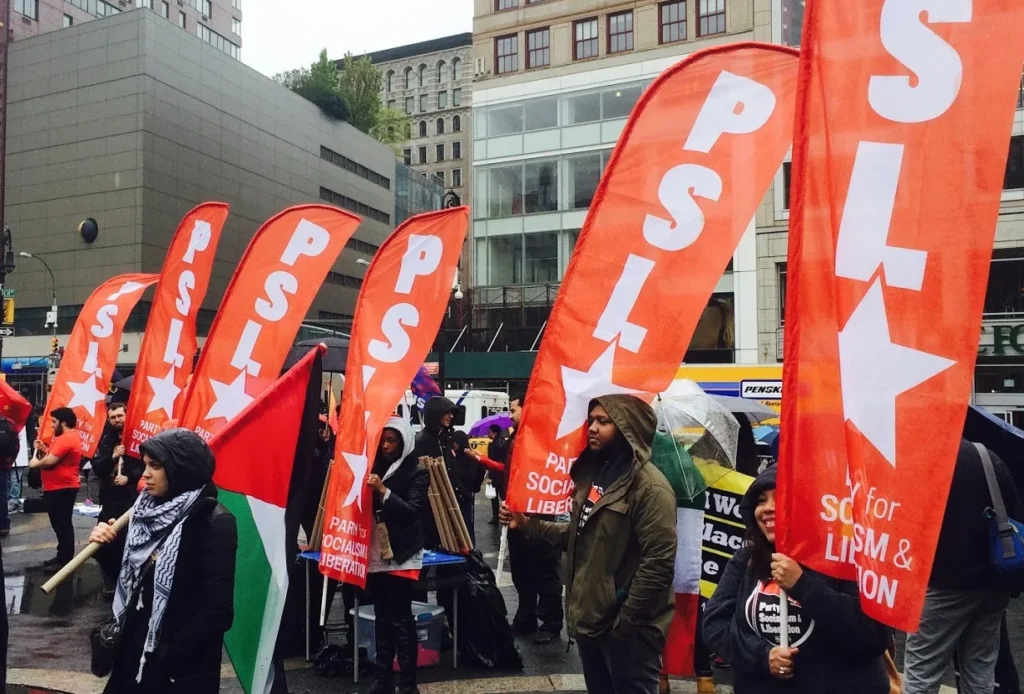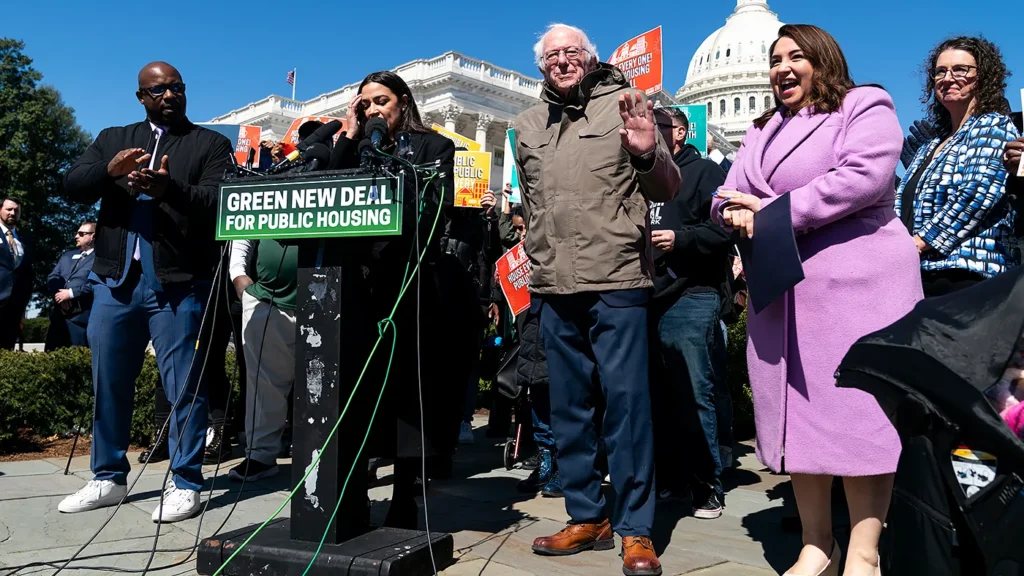
On a brisk afternoon in Washington, D.C., Benjamin Zinovich stands confidently, embodying the quiet intensity of someone who has spent years organizing at the grassroots level. Representing the Party for Socialism and Liberation (PSL), Zinovich spoke candidly about his party’s mission, socialism’s future in America, and why global solidarity remains crucial in their fight against capitalism and imperialism.
Founded in response to the U.S. invasions of Iraq and Afghanistan, the PSL sees capitalism not just as a flawed system, but as one actively harming working-class lives through perpetual wars, economic exploitation, and systemic neglect. Zinovich explains succinctly, “We felt a need to build the ship before the storm.”
Misconceptions and Membership
Pixelhale: Conservatives sometimes label leftist movements as primarily wealthy, white, and elitist. Who makes up the PSL?
Zinovich: Our membership is diverse, largely young, and working-class. We attract members because both Democrats and Republicans have failed to represent genuine working-class interests. Age, race, and background vary widely in PSL; we simply require members to agree with our political program and commit to daily activism. Our founders came from various backgrounds—seasoned antiwar activists, longtime socialists, young students—and that diversity persists today.
Domestic Struggles & the Working Class
Pixelhale: Some criticize movements like PSL as overly focused on international issues rather than domestic problems. How do you respond?
Zinovich: They’re interconnected. Billions of dollars sent to support wars and occupations abroad come at the expense of education, healthcare, and housing at home. We advocate abolishing landlordism, guaranteeing healthcare, and securing the right to housing and jobs as basic rights. If given a fair platform, we believe our agenda would win over millions. Our campaigns emphasize concrete policies like canceling rents and mortgages, nationalizing monopolistic corporations, and enforcing worker protections and union rights.
Palestine & Imperialism
Pixelhale: The PSL emphasizes support for Palestinian liberation. Why is Palestine central to your movement?
Zinovich: Palestinian liberation embodies a stance against settler colonialism and imperialism. The U.S. and other powers have consistently backed Israel as a colonial state, branding Palestinians resisting occupation as terrorists. Billions worldwide now see themselves reflected in the Palestinian struggle, creating an irreversible change in global consciousness.

Pixelhale: Compared to the anti-apartheid movement against South Africa, why hasn’t there been equal outrage toward Israeli apartheid?
Zinovich: The U.S. government hasn’t faced enough sustained domestic pressure to cut ties with Israel yet. Historically, it took decades of concerted civil rights and trade union activism to force the U.S. government away from South Africa. We’re at a similar turning point now with Palestine. We see growing global solidarity, especially among young Jewish Americans increasingly supporting Palestinian liberation, which gives us hope for significant future changes.
Ukraine, Russia & Global Politics
Pixelhale: What is the PSL’s stance on the conflict in Ukraine?
Zinovich: NATO is fundamentally a tool of U.S. domination. The war in Ukraine didn’t begin in 2022—it started in 2014 after a U.S.-backed coup installed a government hostile to parts of its own population. The PSL opposes NATO, advocating to end U.S. bases worldwide and to dismantle the new Cold War against China and Russia. We need global cooperation, especially to confront climate change, rather than escalating conflicts. Instead of engaging in proxy wars, we advocate for diplomacy, peacebuilding, and international collaboration on shared issues like climate and poverty.
Pixelhale: Could you elaborate on PSL’s perspective on China?
Zinovich: The United States sees China as its ultimate geopolitical rival. But China, unlike the U.S., has never bombed another country to seek global dominance. China’s technological advancements, particularly in renewable energy, should be seen as opportunities for cooperation rather than threats. We need collaboration with China to tackle global issues such as climate change. However, current U.S. policies focus more on military confrontation and economic competition, which we strongly oppose.
On Bernie Sanders, AOC, and the Democratic Party

Pixelhale: How does PSL differ from prominent progressive Democrats like Bernie Sanders or Alexandria Ocasio-Cortez?
Zinovich: The Democratic Party historically serves as a graveyard for social movements. They absorb movements advocating LGBTQ rights, civil rights, and worker rights only to dilute their effectiveness. Promises made by Democrats repeatedly fail because they’re ultimately beholden to corporate donors, arms contractors, and billionaires. Unlike progressive Democrats, we refuse corporate money and aim to fundamentally change the capitalist system, not merely reform it.
A Nonviolent Revolution?
Pixelhale: Leftist organizations are often accused of promoting violence, yet PSL explicitly rejects violent tactics. What’s the reasoning behind this stance?
Zinovich: The strongest security comes from widespread public support. The current system enforces itself through police violence, surveillance, and repression. PSL’s revolutionary vision involves deep organization and mass mobilization, not individual acts of violence. History teaches us the power of collective movements. Genuine, lasting change requires winning hearts and minds and demonstrating the possibility of a just, equitable society.
Ending on a hopeful yet grounded note, Zinovich emphasizes the transformative potential of collective action: “Before a revolution, they always say it’s impossible. Once it happens, they claim it was inevitable. Our job is simply to build toward that inevitability.”